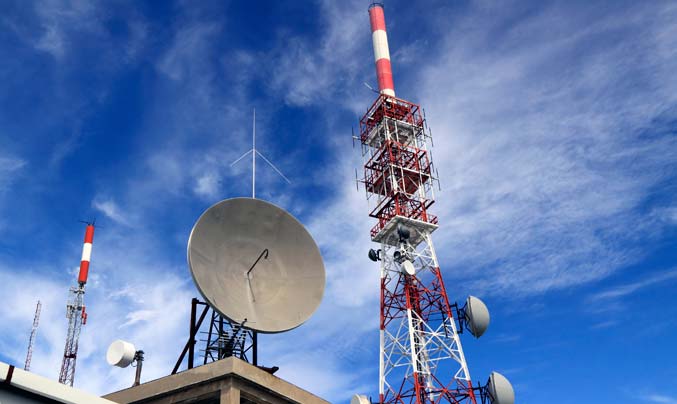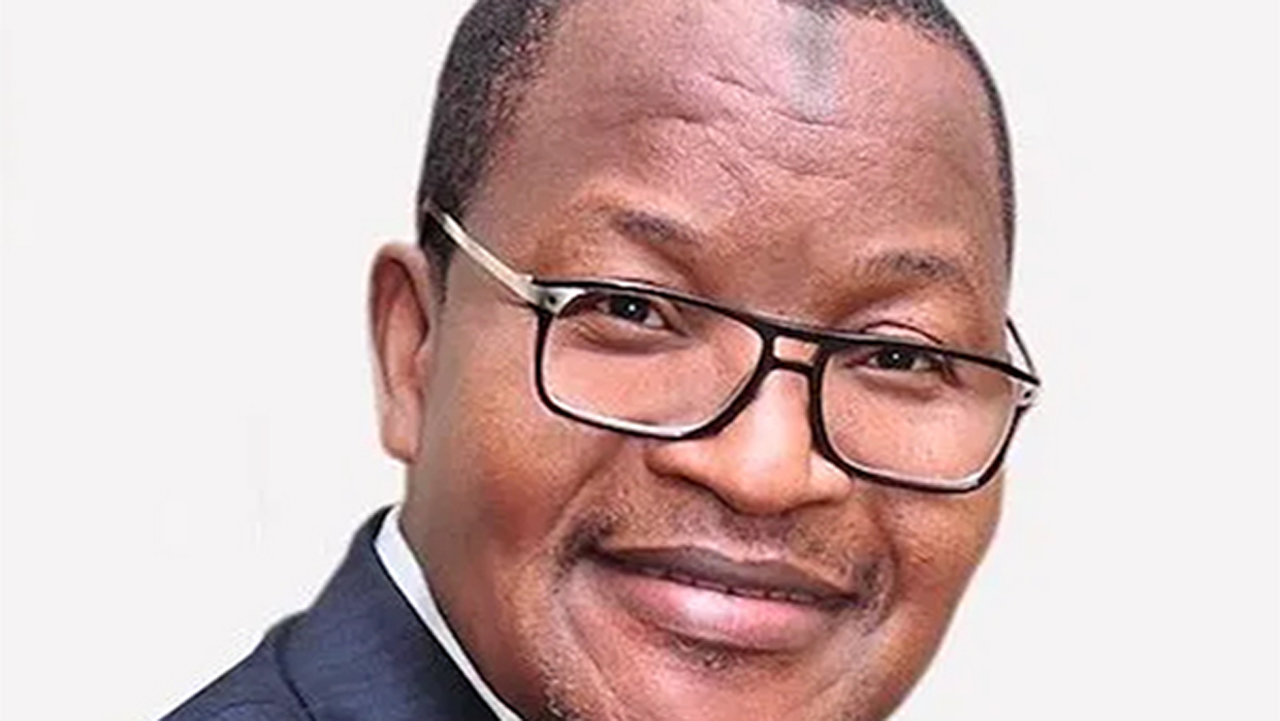
• MTN secures notification to disconnect 60m Glo subscribers on Jan 8
• MTN owns over 50% of outstanding debts
• ALTON expresses worry over conflict, seeks faster resolutions
• NATCOMS commends sanction, wants it applied to USSD debts
Besides the hydra-headed challenges of multiple taxation, right of way (RoW) levies, vandalism, theft among others currently threatening Nigeria’s $76 billion telecoms sector, another challenge set to tear the industry apart is the rising interconnect debts.
An interconnect debt is a liability incurred by an operator for terminating calls on another network. Largely pre-paid by customers using a particular network, settlement of the liabilities is a recurring challenge in the industry and has lingered for over 15 years but currently assuming a threatening form in the industry.
For emphasis, interconnection enables a user to experience the smoothness of a connected network. Hence, a subscriber does not need to know whether the person at the other end of the network subscribes to another network operator.
The debts are not limited to MNOs cycle but cut across the various layers of the sub-sector including value-added service (VAS) to MNOs, Internet service providers (ISPs) to MNOs, MNOs to international data access (IDAs) operators and even among telcos to towercos.
The Guardian gathered that as of the end of 2023, within the mobile network operators (MNOs) cycle about N70 billion interconnect debt was outstanding. The amount is currently causing serious friction and could soon pitch operators against one another in the coming weeks.
As a confirmation of this development, in a Nigerian Communications Commission (NCC) document seen by The Guardian, yesterday, titled, ‘Pre-Disconnection Notice’, the Commission notified the public and subscribers of Globacom that approval has been granted for the partial disconnection of Globacom from MTN Nigeria due to non-settlement of interconnect charges.
NCC, in the document, signed by its Director of Public Affairs, Reuben Muoka, explained that Globacom was notified of the application made by MTN and was allowed to comment and state its case.
The Commission said having examined the application and circumstances surrounding the indebtedness, it determined that Globacom does not have significant or justifiable reasons for non-payment of the charges.
“All subscribers are, therefore requested to take notice that the Commission has approved the Partial Disconnection of Globacom to MTN by Section 100 of the Nigerian Communications Act, 2003 and Paragraph 9 of the Guidelines on Procedure for Granting Approval to Disconnect Telecommunications Operators, 2012.
“At the expiration of 10 days from January 8, 2024, subscribers of Globacom will no longer be able to make calls to MTN but will be able to receive calls.
“The Partial Disconnection, however, will allow in-bound calls to the Globacom network,” it stated.
NCC said this disconnection will persist until otherwise determined by it.
Prior to now, findings revealed that the debt rose from N20 billion in 2013 to N165 billion as of June 2018. Through persuasion and some sanctions from the regulator, some amounts were cleared then.
Expectedly, MTN, being the largest operator in the country, is said to be owed about 50 per cent of the total debts.

Indeed, some months before leaving office, the former Executive Vice Chairman of NCC, Prof. Umaru Danbatta, confirmed that the figure dropped to about N70 billion. He said the debt was a big challenge to infrastructure expansion and inimical to healthy competition, which is needed for facilitating the digital economy in Nigeria.
Now, with Globacom alerted to the initial partial disconnection of its subscribers from putting calls to MTN, the implication is that millions of subscribers on the network would experience erratic service quality and may not be able to put a call through from Glo telephone lines to MTN network as from yesterday.
Checks by The Guardian showed that this may affect about 61 million Globacom subscribers. As of August 2023, Glo controlled 27.8 per cent of the Nigerian market.
According to NCC, MTN remains the largest operator in Nigeria, with 85 million subscribers and 38.5 per cent penetration. Airtel has 60 million users and covers 27.3 per cent of Nigeria, while 9mobile with 6.26 per cent market, services 13.7 million users.
Going by the industry’s current average revenue per user (ARPU) of about $3.8, it means the operators will lose millions of naira to service disruption.
A telecoms expert, Kehinde Aluko, attributed this conflict to poor corporate management, diversion of telecoms revenue to other private investments and poorly drafted interconnection contractual agreements.
While noting that this interconnection indebtedness will slow down government’s socio-economic agenda on the expansion of network spread and quality of service for subscribers.
In his words: “This interconnect indebtedness has the effect of introducing inefficiency into the telecoms industry and the entire national economy, unfair treatment of interconnecting partners will prevent subscribers from having value for their money.”
While operators in the industry have continued to trade blames over the debt incurred with some alleging the inflation of figures, which they attribute to the faulty billing system of their competitor, others lament that the debt is owned by clearing houses.
The clearinghouse receives, validates and accounts for telephone bills for several service providers. They are particularly important for international billing as they convert different data record formats that are used by service providers and convert for the currency exchange rate.
Speaking with The Guardian, the Chairman, the Association of Licensed Telecoms Operators of Nigeria (ALTON), Gbenga Adebayo, said the issue was of serious concern to members.
Adebayo said interconnect debt can generate distrust among members and the industry.
He said it can destroy growth and slow interconnectivity, “we are concerned. But, again, it is an internal matter that we are trying to find the best way to resolve. It is a serious issue, we are praying it doesn’t escalate beyond reasonable measure.”
Still on the matter, the President, the National Association of Telecoms Subscribers of Nigeria (NATCOMs), Chief Deolu Ogunbanjo, who welcomed the development, said the challenge around interconnect debt had been on for the past 10 years.
Ogunbanjo sees no reason why Globacom shouldn’t have paid the money as and when due, stressing that these are monies/revenues collected immediately when calls are made.
“This is a good development so that no one stifles the other from existence. I believe it will serve other operators a lesson too. The interconnect debt has been a debilitating disease in the sector. An operator collects money upfront and refuses to remit when it is supposed to. I think that is bad,” he stated.
While commending NCC for the move, the NATCOMs boss, who recalled that as far back as 2008, as a member of the Industry Working Body, Glo had always been prevailed upon to pay their interconnect debt, said the withdrawal of service should also be applied to banks for refusing to pay the N200 billion Unstructured Supplementary Service Data (USSD) owed the telecoms operators. He said the service should be withdrawn from the banks.
Ogunbanjo, who urged the management of Globacom to do the needful and pay up the debt, said: “This will tell subscribers that Glo is a debtor firm. It will also give room for mobile number portability (MNP) to thrive because, if the matter is not resolved within time and people are not able to call, there will be an exodus of subscribers from Glo to another network.”






